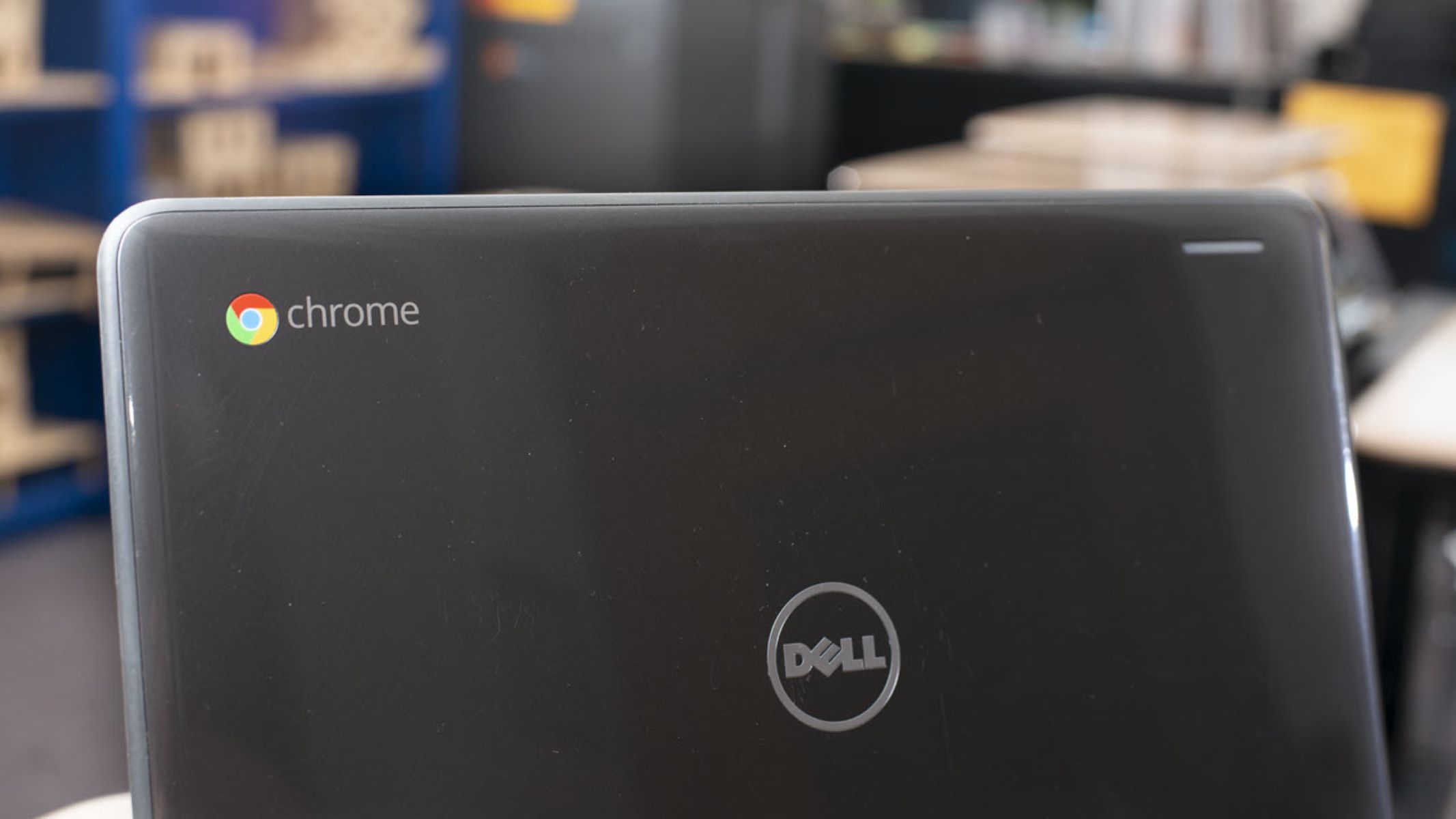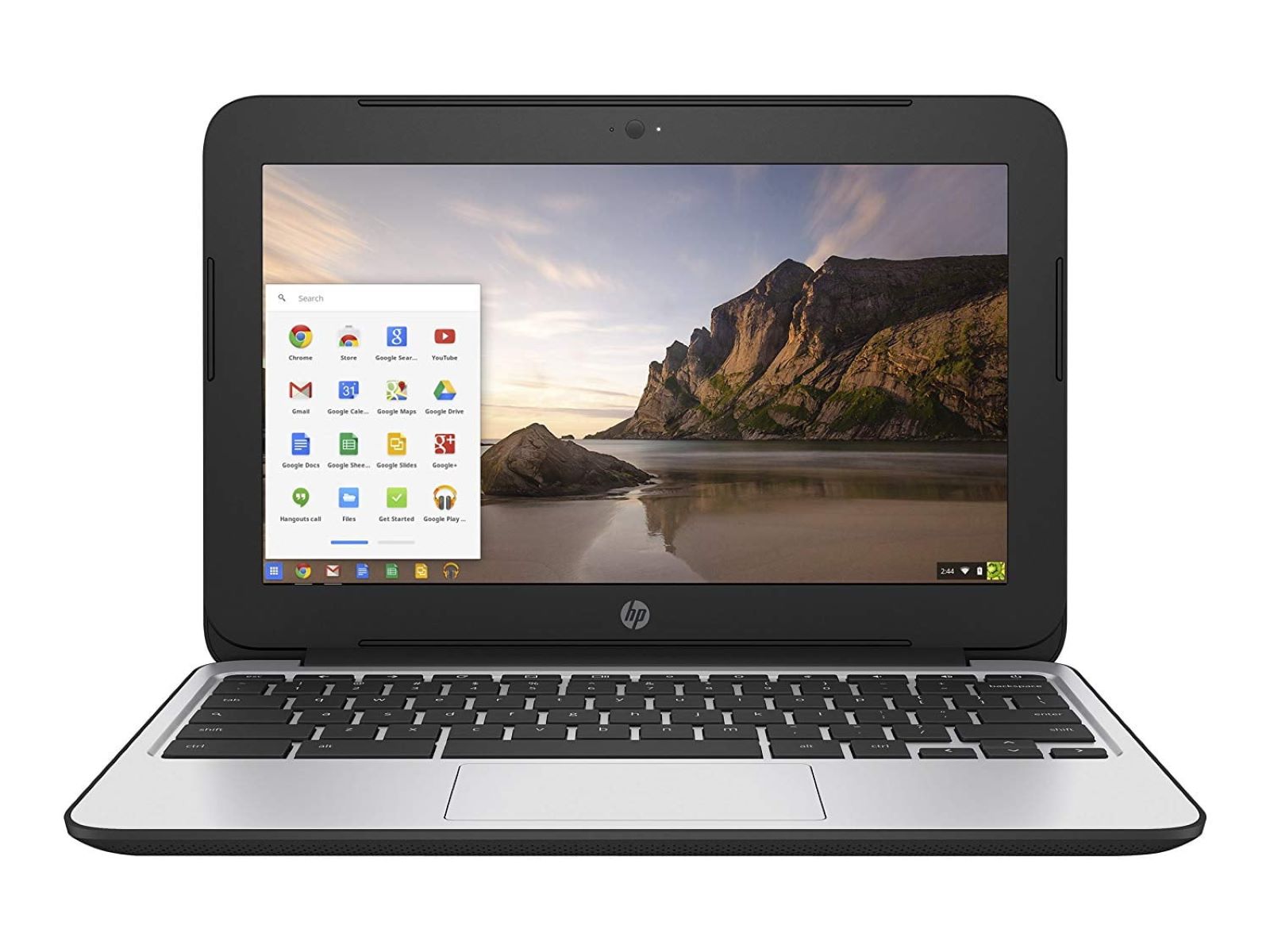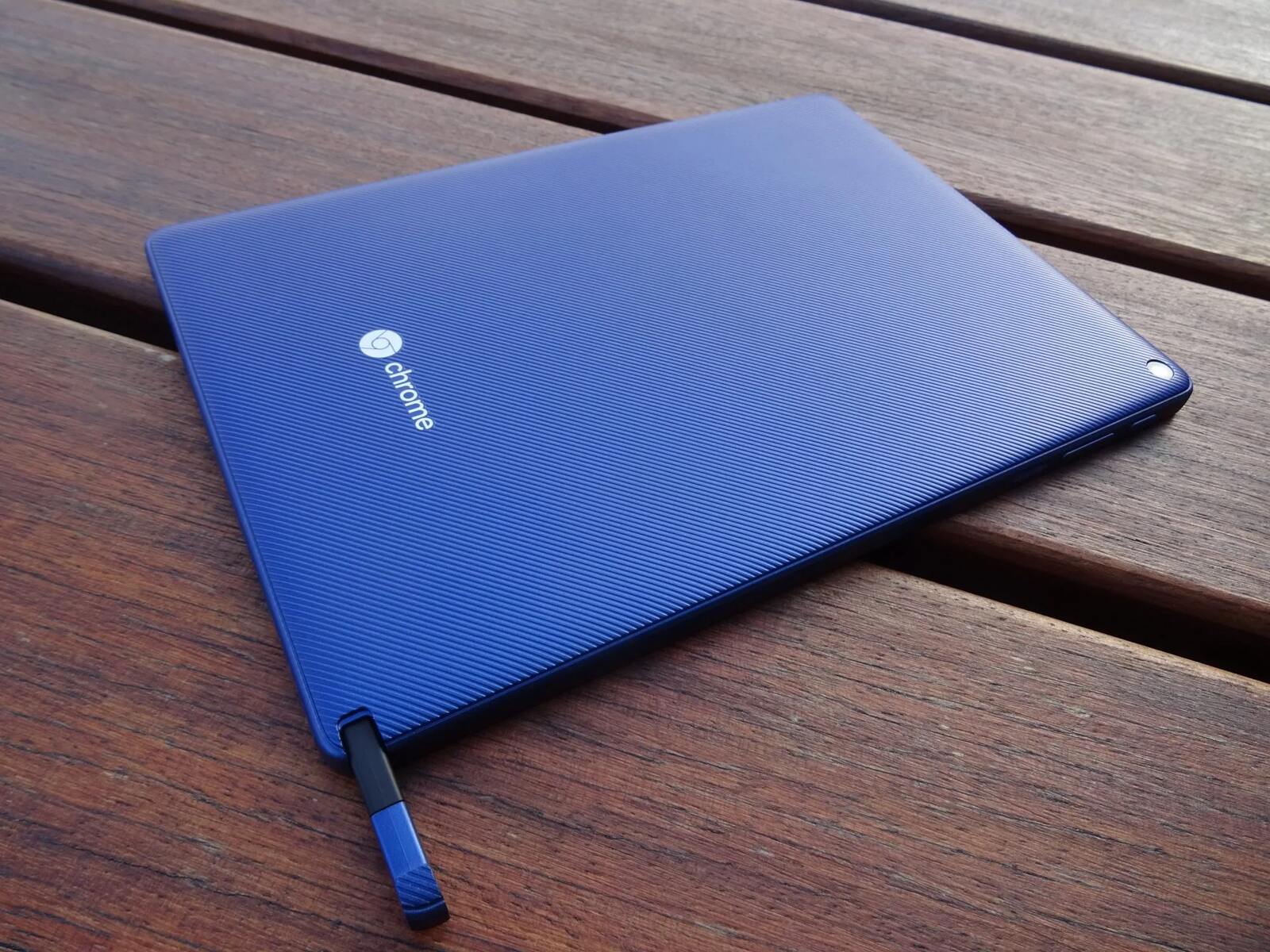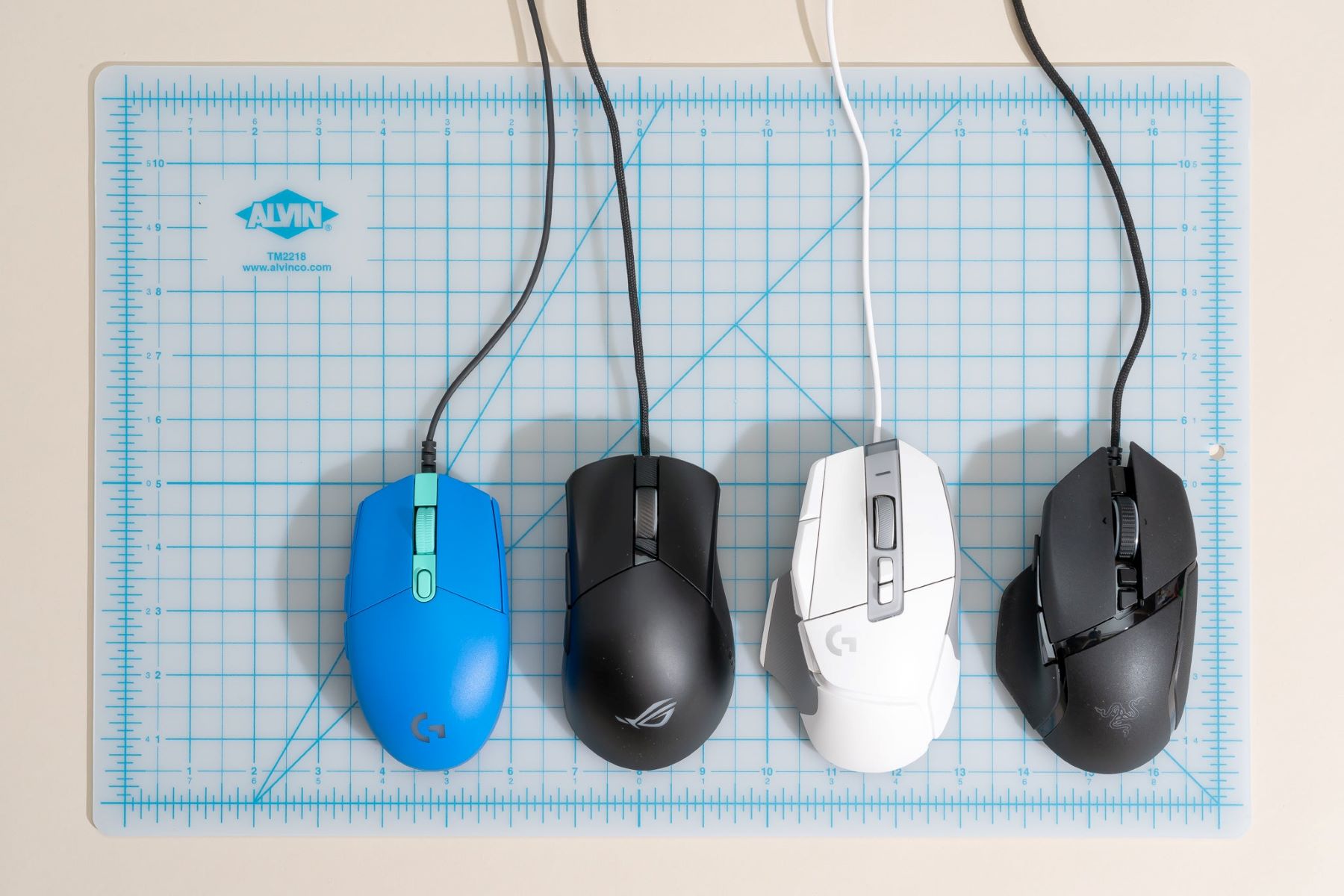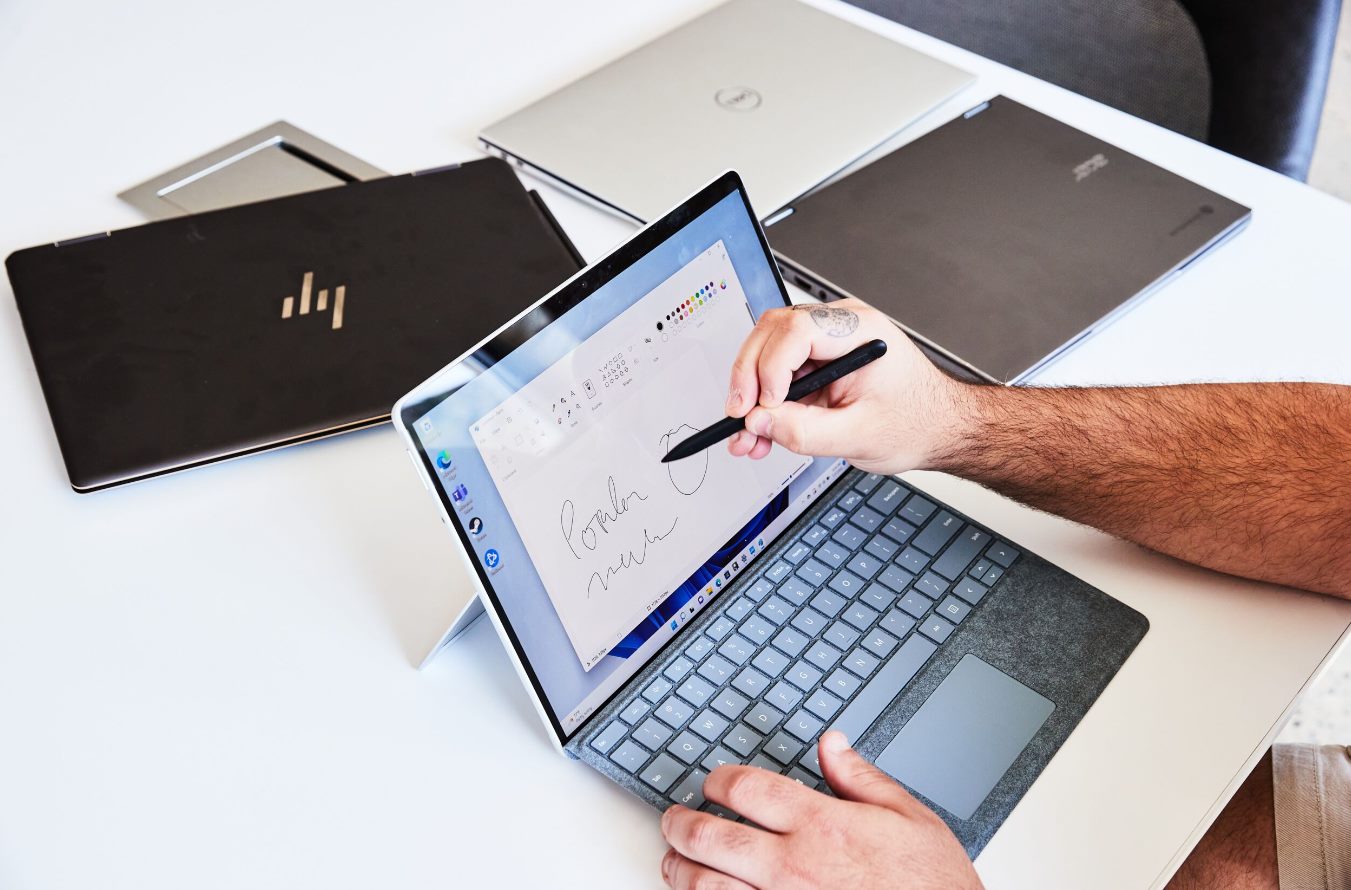Introduction
A Chromebook is a versatile and budget-friendly laptop option that has gained popularity in recent years. With its lightweight design, fast boot-up time, and seamless integration with Google services, it has become a preferred choice for students, professionals, and casual users alike. However, one common question that arises is: how long does a Chromebook last?
The lifespan of a Chromebook can vary depending on several factors, such as battery life, hardware durability, operating system updates, storage capacity, and maintenance. It is essential to understand these factors to make an informed decision when purchasing a Chromebook and to ensure that it serves your needs for an extended period.
In this article, we will explore the various factors that affect the lifespan of a Chromebook and provide you with useful tips to extend its longevity. Whether you are a student looking for a reliable device for your studies or a professional seeking a portable workstation, understanding the lifespan of a Chromebook will help you make an informed decision and optimize your usage.
Factors that Affect the Lifespan of a Chromebook
Several key factors can impact the lifespan of a Chromebook. By considering these factors, you can make informed decisions about your device usage, maintenance, and future upgrades.
Battery Life and Degradation: The battery life of a Chromebook significantly impacts its overall lifespan. High-quality Chromebooks often feature long-lasting batteries, allowing you to use them for several hours without needing to recharge. However, over time, batteries can experience degradation, resulting in reduced overall battery capacity. Regularly charging your Chromebook and following battery care guidelines provided by the manufacturer can help maximize battery life.
Hardware Durability: The build quality and durability of a Chromebook play a crucial role in determining its lifespan. Chromebooks with sturdy construction and quality components are more likely to withstand everyday wear and tear, accidental drops, and other physical damages. Look for Chromebooks with reinforced hinges, spill-resistant keyboards, and robust frames to ensure longevity.
Operating System and Software Updates: Chromebooks run on a lightweight operating system called Chrome OS, which is regularly updated by Google. These updates not only introduce new features and enhancements but also address security vulnerabilities and improve performance. However, as Chrome OS evolves, older hardware may become less compatible with newer updates, potentially limiting the lifespan of the device in terms of software support.
Storage Capacity and Lifespan: Chromebooks typically come with solid-state drives (SSDs) rather than traditional hard drives. SSDs offer faster performance and better durability. However, the lifespan of an SSD is finite, as they have a limited number of read and write cycles. Opting for a Chromebook with sufficient storage capacity for your needs and practicing good file management habits, such as regularly clearing cache and deleting unnecessary files, can help prolong the lifespan of your SSD.
Connectivity and Ports: The availability and type of ports on a Chromebook can also impact its lifespan. As technology advances, newer ports may become more prevalent, and older ports may become obsolete. Therefore, it is advantageous to choose a Chromebook that provides a variety of ports to accommodate different devices and peripherals you may need to connect in the future.
Maintenance and Care: Proper maintenance and care can significantly extend the lifespan of your Chromebook. This includes regularly cleaning the screen and keyboard, keeping the device free from dust and debris, and protecting it from extreme temperatures and moisture. Additionally, using a protective case or sleeve and handling the Chromebook with care can prevent accidental damage and increase its longevity.
By understanding these factors and taking proactive measures to optimize your Chromebook usage and maintenance, you can ensure that your device performs optimally and lasts for an extended period.
Battery Life and Degradation
The battery life of a Chromebook is an essential aspect that determines its usability and overall lifespan. A Chromebook with a long-lasting battery allows you to work, study, or enjoy multimedia content without constantly needing to plug it in for recharging. However, over time, batteries inevitably experience degradation, leading to reduced capacity and shorter battery life.
To maximize the lifespan of your Chromebook’s battery, it is crucial to follow some best practices:
– Regularly charge your Chromebook: While Lithium-ion batteries, which are commonly used in Chromebooks, do not have the “memory effect” associated with older battery technologies, it is still recommended to charge your device regularly. Completely draining the battery before charging is unnecessary and can actually contribute to reduced battery life. Instead, aim to keep the battery charged between 20% and 80% for optimal longevity.
– Avoid extreme temperatures: Exposing your Chromebook to extreme temperatures can have a detrimental effect on its battery life. Avoid using or storing your device in excessively hot or cold environments. High temperatures can cause the battery to degrade faster, while cold temperatures can temporarily diminish the battery’s performance.
– Enable battery-saving features: Chrome OS includes various power-saving features that can help extend the battery life of your Chromebook. Utilize these features, such as power management settings, to optimize the usage of system resources and minimize battery drain. Adjusting screen brightness, disabling unnecessary background processes, and using “Powerwash” to reset the Chromebook’s settings can also contribute to battery conservation.
– Avoid overcharging: Leaving your Chromebook plugged in continuously, even after it reaches full charge, can potentially shorten the battery’s lifespan. Modern Chromebooks are designed to prevent overcharging; however, it is still recommended to unplug the device once it is fully charged and avoid leaving it connected to the charger for extended periods unnecessarily.
– Replace the battery, if necessary: While Chromebook batteries typically last for several years, there may come a time when the battery degradation becomes noticeable. If you notice a significant drop in battery life or your Chromebook frequently shuts down unexpectedly due to low battery, it might be time to consider replacing the battery. Contact the manufacturer or authorized service centers for battery replacement options.
By following these guidelines, you can help prolong the battery life of your Chromebook and ensure that it continues to serve you well throughout its lifespan. While battery degradation is inevitable, practicing good battery care habits can significantly extend its longevity and enhance your overall Chromebook experience.
Hardware Durability
The durability of the hardware components is another crucial factor that affects the lifespan of a Chromebook. A sturdy and well-built Chromebook can withstand the rigors of daily use, accidental bumps, and minor mishaps, ensuring that it remains functional and reliable over an extended period.
When evaluating the hardware durability of a Chromebook, consider the following factors:
– Build quality: Look for Chromebooks that are constructed with high-quality materials and have a solid build. Chromebooks with reinforced hinges, durable frames, and sturdy keyboards can withstand regular usage and are less likely to get damaged due to wear and tear.
– Spill-resistant design: Accidental spills on a laptop can cause significant damage if the device is not designed to handle liquids. Some Chromebooks feature spill-resistant keyboards that help prevent liquids from seeping into the internal components, reducing the risk of water damage and extending the device’s lifespan.
– Impact resistance: The ability of a Chromebook to tolerate accidental drops or impacts is essential for its durability. Look for Chromebooks that have undergone drop tests and have a reputation for withstanding unexpected falls without significant damage. Reinforced corners and shock-absorbing materials can help protect the internal components.
– Screen protection: The display of a Chromebook is vulnerable to scratches and cracks, which can affect both usability and longevity. Consider investing in a Chromebook that utilizes scratch-resistant glass or features a hardened display panel that can resist impact and prevent screen damage.
– Portability and weight: A lightweight and portable Chromebook is often preferred due to its ease of use and portability. However, it is essential to strike a balance between weight and durability. Chromebooks that are too lightweight may sacrifice durability, while overly heavy ones can be cumbersome to carry around. Opt for a Chromebook that offers a good balance between portability and durability based on your specific needs.
To ensure the longevity of your Chromebook’s hardware, it is important to handle it with care. Avoid putting excessive pressure on the hinges, treat the screen gently, and use a protective case or sleeve when carrying the device. Additionally, regular cleaning of the keyboard and touchpad can prevent dirt and debris buildup, which can affect performance and lifespan.
Lastly, consider the manufacturer’s warranty and customer support when purchasing a Chromebook. A reliable warranty policy and efficient customer service can provide peace of mind and assistance in case of hardware issues that may arise during the device’s lifespan.
By choosing a Chromebook with a durable build, taking precautions to protect its hardware, and being mindful of how you handle and carry it, you can significantly extend its lifespan and ensure that it remains a reliable companion for your daily tasks.
Operating System and Software Updates
The operating system (OS) and software updates play a critical role in the lifespan of a Chromebook. Chrome OS, developed and maintained by Google, is the operating system that powers Chromebooks. It is known for its simplicity, security, and seamless integration with Google services.
Regular operating system and software updates provide several benefits:
– Enhanced features: With each update, Chrome OS introduces new features and functionalities. These updates can improve your productivity and overall user experience, providing access to new tools and capabilities to enhance your Chromebook usage.
– Security patches: Operating system updates often include crucial security patches that address vulnerabilities and protect against malware and threats. Keeping your Chromebook up to date ensures that you have the latest security measures in place, safeguarding your data and privacy.
– Performance improvements: Chrome OS updates may include performance optimizations and bug fixes, resulting in smoother operation and overall system stability. By installing these updates, you can ensure that your Chromebook runs efficiently and without any performance-related issues.
– Compatibility: As technology evolves, software applications and web services may require newer versions of the operating system to function correctly. By regularly updating your Chromebook’s operating system, you can ensure compatibility with the latest software releases, enabling you to use a wide range of applications and services.
It’s important to note that while Chrome OS updates are generally available for older Chromebook models, there may come a point when certain hardware components no longer receive software support from Google. This means that older models may no longer be eligible for future major updates, resulting in potential limitations in terms of performance and compatibility with the latest software releases.
Despite this, Chromebooks generally have a longer software support lifespan compared to other operating systems, with updates being provided for several years. However, it’s worth researching and considering the expected period of software support when purchasing a Chromebook, especially if you anticipate using the device for an extended duration.
To ensure that your Chromebook receives regular updates, it is recommended to enable automatic software updates in the settings. This way, your device will download and install updates in the background, keeping it up to date with the latest features and security patches without requiring manual intervention.
By staying up to date with operating system and software updates, you can help prolong the lifespan of your Chromebook and ensure that it remains secure, performant, and compatible with the latest software developments.
Storage Capacity and Lifespan of Storage Devices
The storage capacity and the type of storage device used in a Chromebook can significantly impact its lifespan and performance. Chromebooks typically utilize solid-state drives (SSDs) instead of traditional hard disk drives (HDDs). SSDs offer faster data access, improved durability, and lighter weight compared to HDDs.
Here are some key points to consider regarding storage capacity and the lifespan of storage devices:
– Sufficient storage capacity: When choosing a Chromebook, it is essential to consider your storage needs. Chromebooks generally come with different storage options, ranging from 32GB to 512GB or more. Assess your requirements based on the type of files and applications you plan to store on your Chromebook. Opting for a storage capacity that meets your needs will ensure that you have enough space to store your files without compromising the device’s performance or lifespan. Remember that Chromebooks often rely on cloud storage, so a smaller internal storage capacity can still be practical with cloud-based storage solutions.
– Lifespan of SSDs: While SSDs are known for their durability and reliability, they do have a limited lifespan. Each SSD has a specific number of read and write cycles it can perform before showing signs of wear. However, modern SSDs generally have a significantly longer lifespan compared to traditional HDDs. By practicing good file management, such as regularly deleting unnecessary files and managing downloads and applications, you can help prolong the lifespan of your SSD. Additionally, enabling Trim support (a feature that helps with optimizing SSD performance) and avoiding extreme temperatures can also contribute to the longevity of the storage device.
– Cloud storage and external options: Chromebooks are designed to leverage cloud-based storage solutions, allowing you to store files, documents, and media on remote servers instead of relying solely on the device’s internal storage. This not only frees up space on your Chromebook but also provides an additional layer of backup and accessibility. Additionally, you can utilize external storage options, such as USB thumb drives or external hard drives, to expand your storage capacity. Chrome OS has built-in support for external storage devices, making it convenient to access or transfer files as needed.
While modern SSDs are generally reliable and offer good longevity, it’s worth being mindful of the storage capacity you choose and how you manage your files to ensure optimal performance and storage device lifespan.
Regularly backing up your important files and utilizing cloud storage solutions can help protect your data in the event of a storage device failure. It’s always advisable to maintain multiple copies of critical files to prevent data loss.
By considering your storage needs, practicing good file management, utilizing cloud storage, and being proactive with backups, you can maximize the lifespan and performance of the storage device in your Chromebook.
Tips to Extend the Lifespan of Your Chromebook
To ensure that your Chromebook continues to serve you well for an extended period, it’s important to take proactive measures to maintain its performance and longevity. Here are some useful tips to help you extend the lifespan of your Chromebook:
1. Keep your Chromebook updated: Regularly update your Chromebook’s operating system and applications to benefit from the latest features, performance enhancements, and security patches. Enable automatic updates for convenience.
2. Practice good battery care: Follow best practices for battery care, such as avoiding overcharging, charging between 20% to 80%, and keeping your Chromebook at moderate temperatures to maximize battery lifespan.
3. Protect your Chromebook: Use a protective case or sleeve to safeguard your device from scratches, bumps, and minor drops. Avoid placing heavy objects on top of your Chromebook and handle it with care.
4. Keep it clean: Regularly clean your Chromebook’s screen, keyboard, and touchpad using gentle cleaning agents and microfiber cloths. This helps prevent dirt, dust, and debris from causing damage or affecting performance.
5. Manage your storage: Practice good file management and regularly delete unnecessary files and applications to free up storage space. Utilize cloud storage solutions and external storage devices for additional storage options.
6. Stay vigilant against malware: Chrome OS is inherently secure, but it’s always a good practice to exercise caution when downloading files or visiting unfamiliar websites. Install trustworthy antivirus software and use Chrome’s built-in security features to protect your Chromebook from malware and threats.
7. Avoid excessive heat: Exposure to high temperatures can cause damage to your Chromebook’s internal components. Avoid leaving it in direct sunlight or in a hot car. Similarly, extreme cold can also adversely affect your device’s performance.
8. Regularly backup your data: Utilize cloud storage or external storage devices to backup your important files and documents regularly. This protects your data from loss in case of hardware failures or other unforeseen events.
9. Don’t overload your device: While Chromebooks are designed for lightweight usage, try to avoid overloading your device with too many open tabs or resource-intensive applications. Close unnecessary tabs and applications to improve performance and reduce strain on the system.
10. Seek professional assistance when needed: If you encounter any hardware or software issues that you can’t resolve on your own, seek help from the manufacturer’s customer support or authorized service centers.
By following these tips and being mindful of how you use and care for your Chromebook, you can significantly extend its lifespan and ensure that it remains a reliable and efficient device for your daily tasks.
Conclusion
A Chromebook can be a valuable and long-lasting device if you take the necessary steps to maintain its performance and durability. Factors such as battery life, hardware durability, operating system updates, storage capacity, and proper care all contribute to the lifespan of a Chromebook.
To maximize the lifespan of your Chromebook, consider implementing the following practices: regularly update your operating system and applications, practice good battery care, protect your Chromebook with a case or sleeve, keep it clean, manage your storage effectively, stay vigilant against malware, avoid excessive heat, backup your data, and seek professional assistance when needed.
By incorporating these tips into your Chromebook usage, you can ensure that your device remains reliable, secure, and efficient for an extended period. Remember to choose a Chromebook with a reputable brand, durable hardware components, and a sufficient storage capacity that meets your needs.
Ultimately, the lifespan of a Chromebook can vary depending on your usage habits and the quality of the device. However, with proper care and maintenance, a well-chosen Chromebook can serve you well for several years, providing a seamless and productive computing experience.
Investing a little time and effort into understanding and implementing these best practices can help you maximize the lifespan of your Chromebook and get the most out of your investment in this versatile and budget-friendly device.







